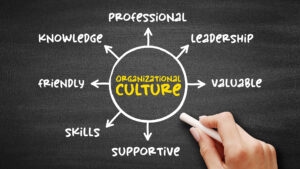Modern workplaces are witnessing a radical transformation. Economic turbulence, generational shifts, and technical developments create a culture where traditional corporate ladders are no longer attractive to employees. Today, employees prioritize growth, human value, and purpose over managerial power and titles.
Historically, one waited to ascend on the departmental rungs starting at lower positions and over the years moving up the corporate ladder. However, modern-age employees seek careers and promotions where their potential can be completely unlocked. They prefer to work with managers who promote their development and growth.
Organizations that fail to evolve may lose their talented people as they seek other opportunities. The solution is creating a coaching culture where leaders adopt collaborative approaches to work with their teams. Adopting a growth mindset across the organization enhances productivity and ensures top talent stays empowered and engaged.
Here are five ways managers can become effective coaches:
1. Setting Clear Expectations
Leaders must know their team members beyond their work. They must understand their goals, what drives their decisions, and how they are willing to contribute for their personal and organizational growth. With this understanding, leaders and their team members can together set clear expectations. When leaders include their team members in creating their goals in alignment with organizational objectives, employees are more willing and motivated to participate in overall growth. People are more committed to achieving goals that are set with their conjunction.
2. Creating Accountability
Setting expectations and goals is important. But without real benchmarks and timelines, people may be less likely to realize these plans and achieve their desired growth. Leadership coaching programs offer strategies that can establish accountability between leaders and their team members. Ongoing conversations and regular sessions can offer consistent feedback and support to synchronize the goals within the predetermined timelines.
3. Emotional Intelligence
Emotional intelligence (EI) is a very important skill for modern-day leaders as it is beneficial to build and foster relationships. Employees are often likely to follow leaders who have a genuine interest in their well-being. Being emotionally intelligent requires leaders to recognize non-verbal cues and understand how their team members feel about their roles and the organization. Acquiring empathetic traits with an effective executive coaching program plays an important role in building trust, enhancing productivity, and increasing the retention rate.
4. Active Listening
Leaders often are expected to provide answers and solutions. Therefore, they easily are habituated to listening to prepare an answer or offer a solution rather than with the objective of understanding and holding space. Management leadership and coaching services focus on the individuals within the organization and are people-centric instead of being task-oriented. Many people who quit their organizations feel that the reason was because their managers did not hear them. Active listening requires replacing judgement with curiosity, providing support, leveraging silence, and being open to different perspectives. Such culture offers people an open and safe space to conduct honest conversations and two-way feedback for complete help and support.
5. Empowering Strengths
People don’t like to work for leaders who fixate on their weaknesses. While areas for growth and improvement need to be understood, employees whose strengths are celebrated have a higher potential to grow when compared to people whose weaknesses are constantly highlighted. An organizational culture focused on strengths attracts and retains talent. Leaders as coaches must shift their focus to strengths and encourage their people to develop these further while working on overcoming their weaknesses. Strength-based coaching brings a sense of belonging and value that enhances engagement and work ethics.
To ensure companies retain talent, leaders must shift their focus from issuing orders to collaborating with the people. However, the question is if leaders are capable of becoming effective coaches in the modern work environment. Are they empowered to guide team members towards growth and purpose rather than simply moving up the corporate ladder?
The answer to all these questions is developing leaders as effective coaches. Through coaching targeting shifts in their mindsets and skill-building, leaders can evolve into effective coaches who get the best performance from their people. Enroll today to teach leaders the five strategies that enable them to support their team members while driving organizational growth.





